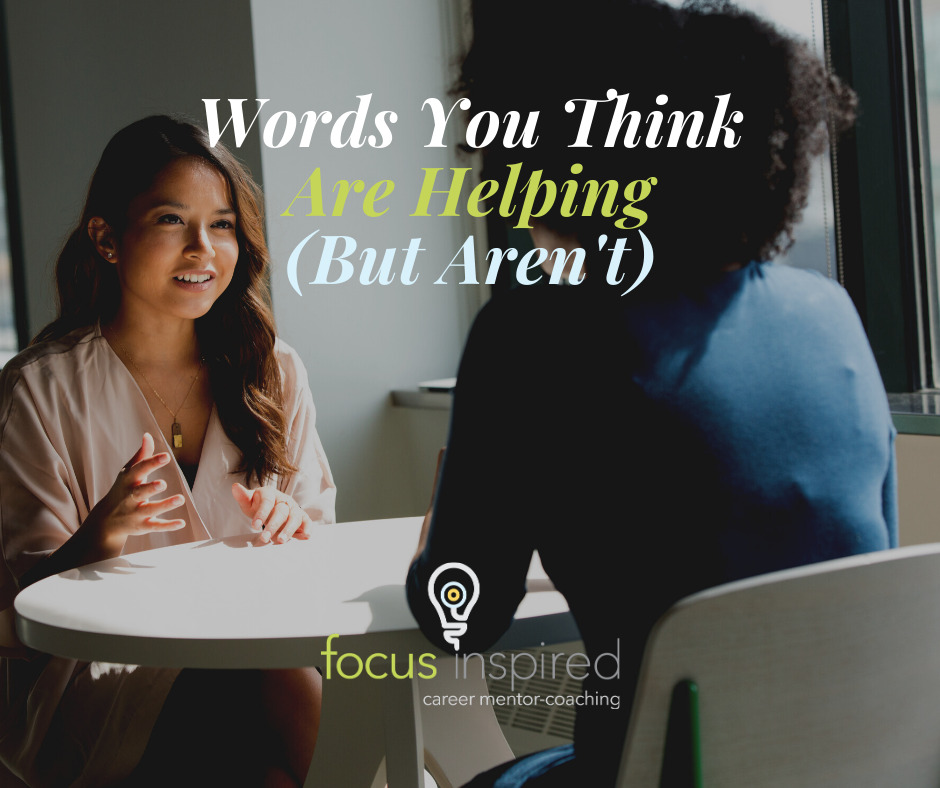
Words You Think Are Helping (But Aren’t)
There are a number of words that we use on a daily basis that we sometimes use without even thinking about it. These are the phrases that we often use as filler in our conversations or excuses as to why we didn’t perform up to expectations. They are the wishiest of washy and are undermining every sentence you say or use.
Let me get this right out there, my spoken language is often full of crutch phrases and excess, and I am by no means a model in terms of how I speak. The difference between me and the average person however, is that I recognize the fact that I use them and I am actively doing my best to try and remove them from my vocabulary. Why, you ask? Well, let’s get into it a little. Here are a few of the worst offending words or phrases that even I catch myself using sometimes.
1. “I will do my best.”
When someone asks you to do something and you respond with this phrase, you are instantly seeding them with doubt that you will actually complete your task. “I will do my best” indicates that you are not sure that you can complete your assigned task, and you are preparing them to accept the fact that you failed when the time comes. It doesn’t inspire confidence and even if you do complete your tasks, if you regularly use that phrase, you will have some people trust you with tasks less and less often as a result.
2. Like
I’m not exactly sure how this one became a part of the general population’s vernacular, but it is incredible how many “likes” one can pack into a sentence. In a sense, the word “like” has become a pandemic of its own as it creeped in as the go-to crutch word of the generation. Test yourself and see, you might be surprised at just how much you use it.
3. “You always…” or “You never…”
The biggest problem with generalizations is that you are limited to an all or nothing situation. Rarely does life give you absolutes, so why have we started using them so frequently in our speech? These often come up in heated arguments when tensions are high and people don’t say things they necessarily mean. These absolutes only serve to aggravate people and make them defensive, and it’s never a good situation for either person to be in. Try to catch your absolutes before you speak them, you will likely find people are more receptive to what you are saying.
4. “I…but…”
These phrases take on the form of “I hate to say this, but…” or “I really like that, but…” among others. This type of phrase comes around when someone is trying to lessen the blow of some sort of criticism they are giving. Unfortunately, this only serves to make any future compliments they might give seem much less sincere due to the fact that they are giving this throwaway line that they don’t usually mean. The point of the phrase is not the “compliment” portion, but the criticism itself. If you have a criticism, it is generally a better idea to be straightforward instead of trying to beat around the bush.
These are just a few words or phrases that weaken one’s casual language, and it is generally strongly encouraged to adjust and avoid these whenever possible. Grab a friend and ask them to have a conversation with you, pointing out some of the things that you add in or say that you don’t even notice. Fixing your speech can be a huge confidence booster, and it might be worth giving a try.
Follow:Share: